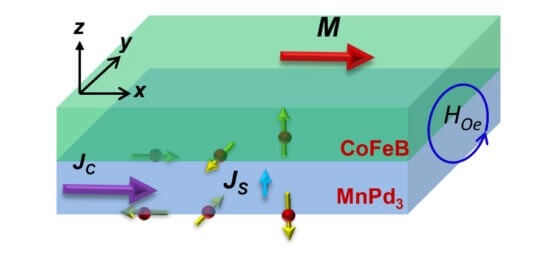Key Points:
- Researchers find new material, magnesium palladium three, that could improve computer memory storage.
- This material can make memory storage faster and more efficient, especially for AI applications.
- Magnesium palladium three is compatible with current manufacturing techniques, making it easier to implement.
As artificial intelligence (AI) technologies have become more complex, the demand for computing power has increased rapidly. To meet this demand, new and energy-efficient hardware designs are needed. Researchers at Stanford University, led by Shan Wang, have discovered a new material called magnesium palladium three that could revolutionise computer memory storage and make AI work faster and use less energy.
“In my opinion, we have already transitioned from the internet era to the AI era,” says Shan Wang. “We want to enable AI on edge – training locally on your home computer, phone, or smartwatch – for things like heart attack detection or speech recognition. To do that, you need a very fast, non-volatile memory.”
The researchers found that magnesium palladium three has the properties needed to facilitate a new type of memory storage called spin orbit torque magnetoresistive random access memory (SOT-MRAM). This method stores data using electron spin directions, which can be faster and more efficient than current methods that store data using electric charge.
The key to SOT-MRAM is a property of electrons called spin. Picture an electron as a spinning basketball on a finger. Because electrons are charged particles, the spin turns the electron into a tiny magnet. Researchers can use the up or down direction of that magnetism to represent computer data.
In SOT-MRAM, a current flowing through one material (the SOT layer) generates specific spin directions. The movement of those electrons, along with their spin directions, creates a torque that can switch the spin directions of electrons in an adjacent magnetic material. With the right materials, storing magnetic data is as simple as switching the direction of an electrical current in the SOT layer.
However, finding the right SOT materials has been challenging. Most materials polarise electron spins in the wrong direction, which requires more energy and space to switch the spin direction. Magnesium palladium three, on the other hand, can generate spins in any orientation, making it more energy-efficient and capable of storing more data.
“We have the same input current as other conventional materials, but we have three different directions of spins now,” says Mahendra DC, one of the researchers. “Depending on the application, we can control the magnetisation in whatever direction we want.”
Another advantage of magnesium palladium three is that it is compatible with current manufacturing techniques. This means that it can be easily integrated into existing processes, without the need for new tools or techniques.
One of the challenges for new materials in these devices is surviving the high temperatures required during the manufacturing process. Fortunately, magnesium palladium three can handle the temperatures, making it an excellent candidate for SOT-MRAM applications.
The researchers are already working on prototypes of SOT-MRAM using magnesium palladium three that can be integrated into real devices. This breakthrough could help meet the growing computing requirements of AI technologies and pave the way for a new era of faster, more energy-efficient computing.
“We are hitting a wall with the current technology,” says Mahendra DC. “So we have to figure out what other options we have.”
If our reporting has informed or inspired you, please consider making a donation. Every contribution, no matter the size, empowers us to continue delivering accurate, engaging, and trustworthy science and medical news. Independent journalism requires time, effort, and resources—your support ensures we can keep uncovering the stories that matter most to you.
Join us in making knowledge accessible and impactful. Thank you for standing with us!

